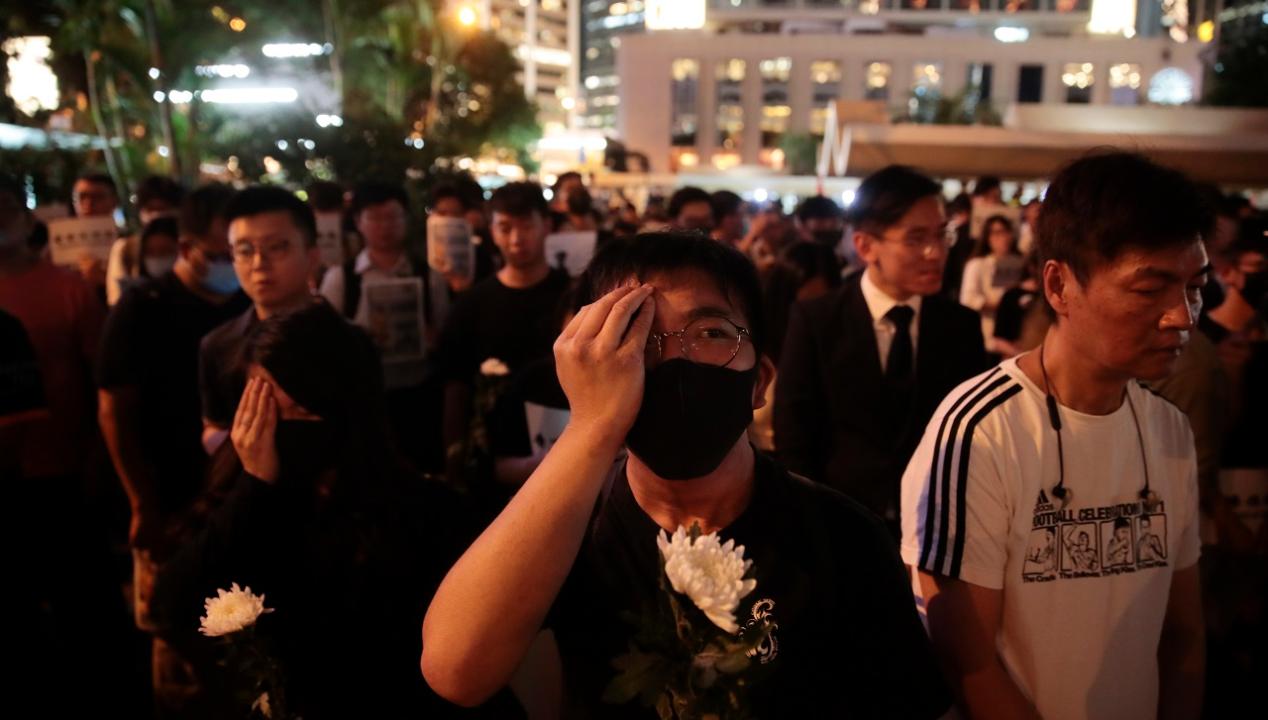Hong Kong erupts in violence as protesters defy police ban
Hong Kong police fired tear gas and blue dye from water cannons to dispel crowds of protesters who defied a police ban and marched through the city on Saturday, the fifth anniversary of Beijing officially ruling against fully democratic elections.
Tens of thousands rallied in Hong Kong during the 13th straight week of pro-democracy protests, which began earlier this summer over a now-shelved bill that would have allowed the extradition of suspected criminals from Hong Kong to mainland China, where the courts are controlled by the Communist Party.
They’ve since morphed to reflect broader calls for reform.
The rally came just one day after Hong Kong police arrested three pro-democracy activists, some of whom played a pivotal role in organizing the so-called Umbrella Revolution in 2014, in an apparent attempt to subdue the mass protests.
Although the demonstration was canceled over fears that police would arrest attendees en masse, thousands turned out anyway, with some throwing objects and gasoline bombs at police. Protesters then gathered behind a huge makeshift barrier, many pointing laser beams in the sky above them.
The violence continued to escalate, with police firing at least one live round as a warning show to protesters, according to the South China Morning Post, citing a source with knowledge. That marks the second time police used live rounds. Last weekend, an officer fired a live round skyward after he and his colleagues were chased and beaten by hardcore protesters "wielding iron poles," the Morning Post reported.
The protest was set to coincide with Beijing’s decision five years ago — known simply as “8/31” — to impose restrictions on Hong Kong elections, setting off a series of protests over several months internationally known as the Umbrella Movement.
CLICK HERE TO READ MORE ON FOX BUSINESS
Hong Kong, a former British colony, was returned to China in 1997 under an agreement known as “one country, two systems,” which allowed the city to retain a “high-degree of autonomy” for 50 years. The agreement expires in 2047.




















